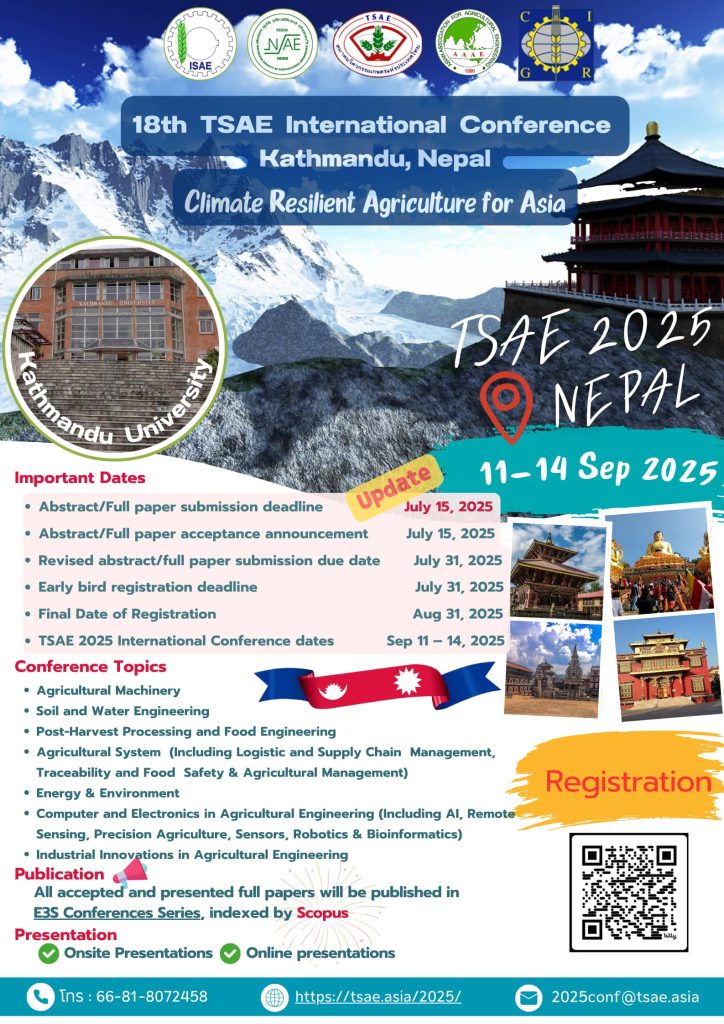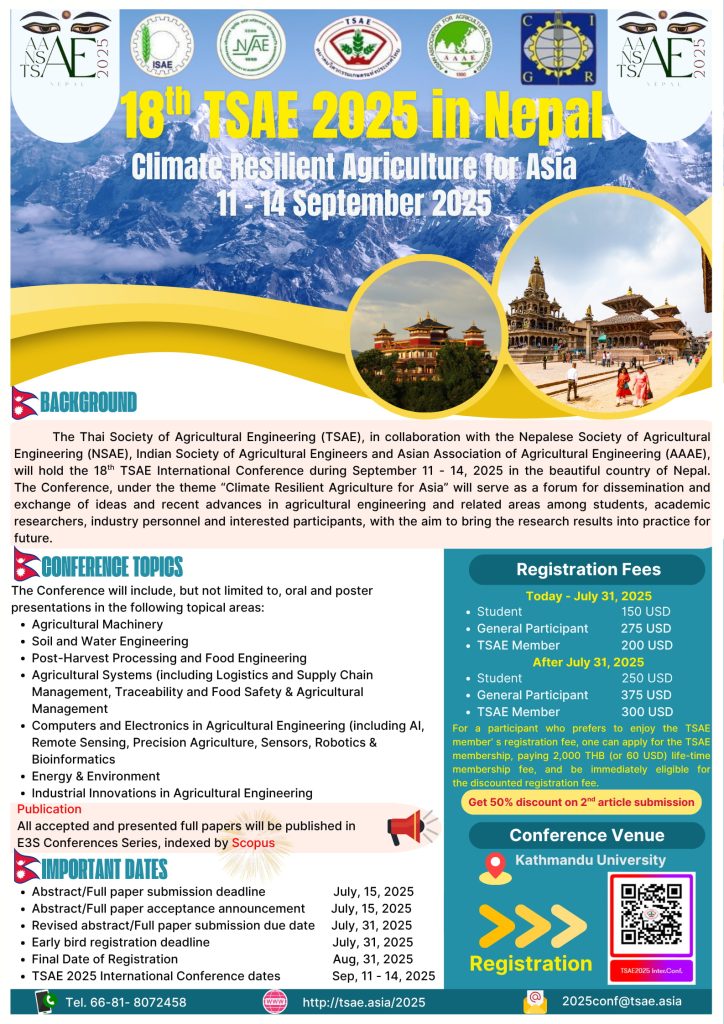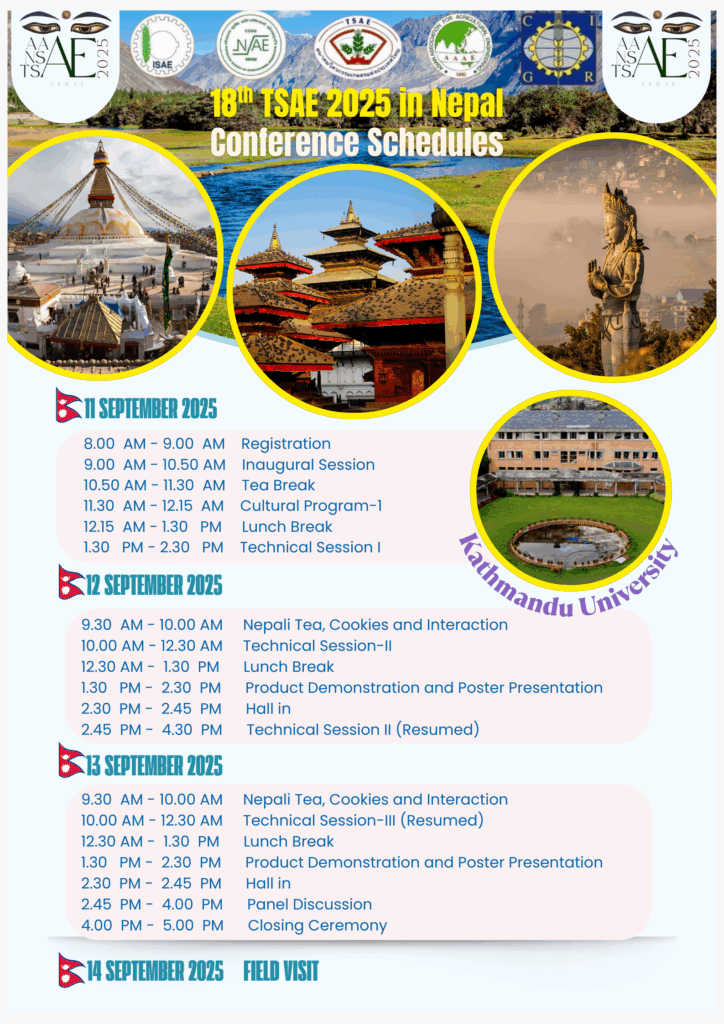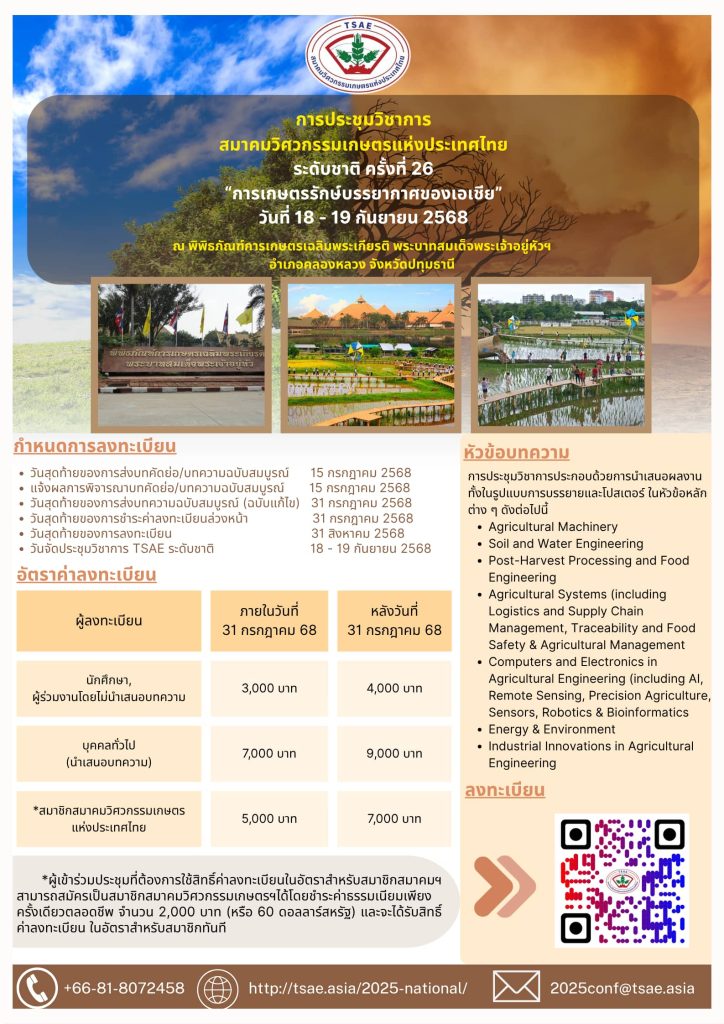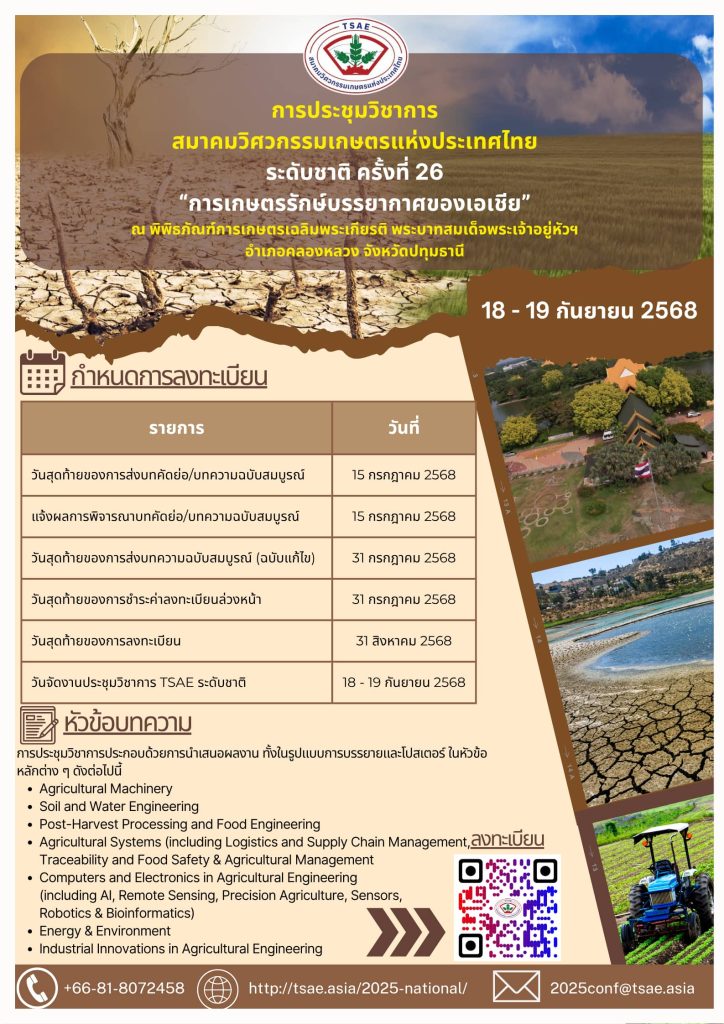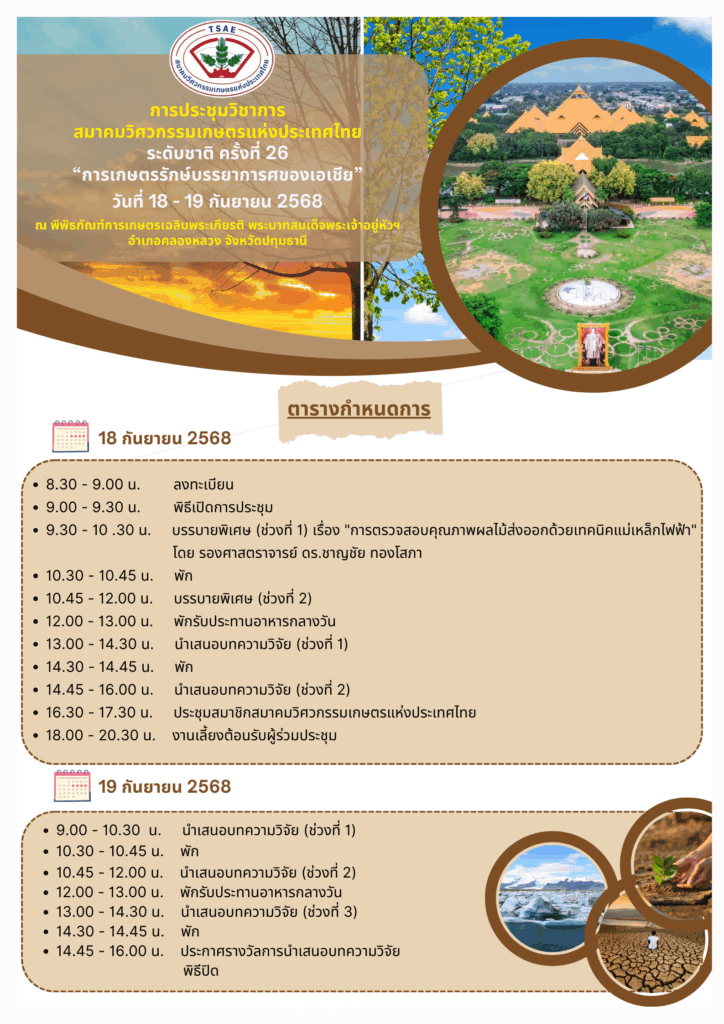CIAME Asia 2025 Thailand
อย่าพลาดเวทีสำคัญของภูมิภาคที่จะสร้างอนาคตใหม่ให้ภาคการเกษตรไทย!
ก้าวสู่ยุคเกษตรดิจิทัลไปด้วยกัน
🎉 ครั้งแรกในไทย! มหกรรมเครื่องจักรกลการเกษตรระดับเอเซีย
🚜 CIAME ASIA 2025 – งานแสดงนวัตกรรมเครื่องจักรกลการเกษตรนานาชาติสุดยิ่งใหญ่จากจีน ที่จัดนอกประเทศจีนเป็นครั้งแรก และ ประเทศไทยได้รับเกียรติเป็นเจ้าภาพ! 🇹🇭
📅 วันที่ 23–25 กรกฎาคม 2568
🕙 เวลา 10:00–18:00 น.
📍 ณ ฮอลล์ 8 ศูนย์แสดงสินค้าและการประชุมอิมแพ็ค เมืองทองธานี
พบกับ:
✅ เทคโนโลยีเครื่องจักรกลการเกษตรล้ำสมัยจากจีนและนานาชาติ
✅ ระบบอัตโนมัติที่ตอบโจทย์ภาคเกษตรไทย
✅ การเจรจาธุรกิจระหว่างประเทศ
✅ โอกาสการเรียนรู้และสร้างเครือข่ายธุรกิจใหม่
✅ ราคาคุ้มค่าเพื่อเกษตรกรไทย
✨ งานนี้จัดโดยความร่วมมือของ 3 สมาคมสำคัญจากจีน: CAMDA, CAMA และ CAAMM ร่วมกับ #สมาคมวิศวกรรมเกษตรแห่งประเทศไทย เพื่อขับเคลื่อนภาคเกษตรไทยสู่ระดับโลก
18th TSAE International Conference

ข่าวประชาสัมพันธ์
AgriSpark Hackathon 2025 – Hack the Hills
ไอเดียของคุณอาจนำไปสู่การช่วยลดปัญหาการเผาบนพื้นที
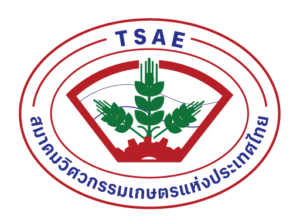
ข่าวประชาสัมพันธ์
ขยายระยะเวลาส่งบทคัดย่อ/บทความวิชาการ
ข่าวดี! ขยายเวลาส่งบทคัดย่อ/บทความฉบับสมบูรณ์ถึง 1

E-Journal
วารสารสมาคมวิศวกรรมเกษตรแห่งประเทศไทย ปีที่ 31 ฉบับที่ 1
มาแล้ว! TSAE JOURNAL ปีที่ 31 ฉบับที่ 1 (มกราคม –
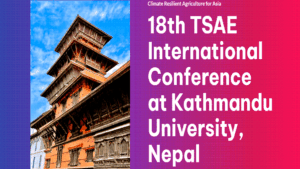
ข่าวประชาสัมพันธ์
18th Thai Society of Agricultural Engineering International Conference [TSAE 2025] at Nepal
สมาคมวิศวกรรมเกษตรแห่งประเทศไทย (สวกท.) ขอเรียนเชิ
